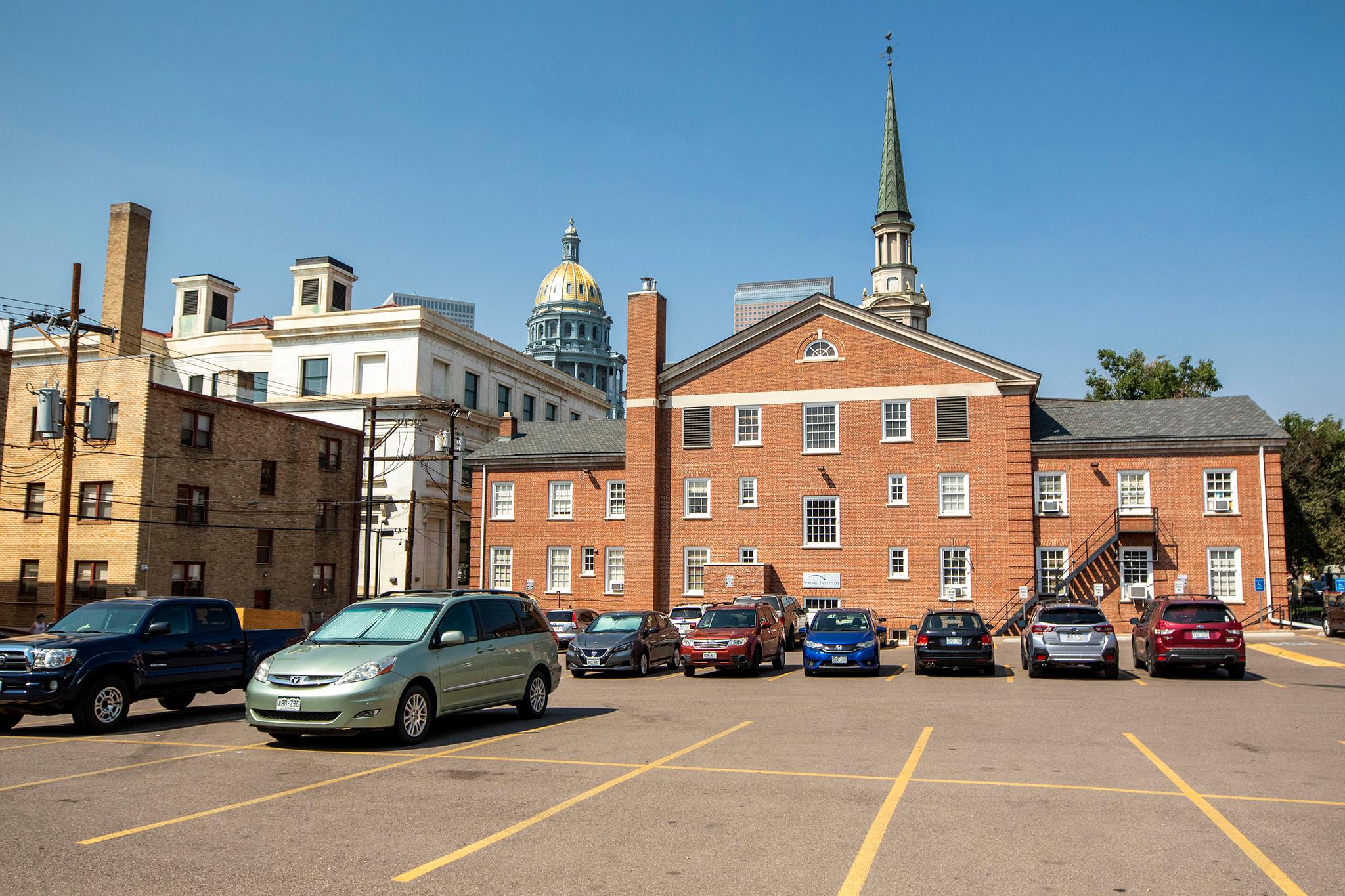The lots next to the historic First Baptist Church of Denver have served many functions.
For years, apartment buildings stood there. Then in the early '60s, the church tore down the apartments to make way for parking. In 2020, the parking lot served as the pilot Safe Outdoors Site, sanctioned camping spots for unhoused residents.
Now, decades after the parking lot was built, church members have decided they want apartments there. They are proposing to develop those same lots into a mix of income-restricted and market-rate housing.
How did the church find itself acting as a developer?
"We have been charging people to park in our lots for the last several years," said the church's minister, Brian Henderson.
Running a parking lot proved to be financially unwise. Taxes kept rising, and the church council decided to look into developing the land instead.
After exploring how to find a developer to buy the property, the church decided to become a developer itself, working in partnership with other companies. That was a first for the congregation, and the past year has been a learning opportunity, said Henderson.
In early September, the church, along with LAI Design Group, filed concept plans with the city for a 12-story 216-unit residential complex to be built at 1335 and 1345 North Grant Street, near the Colorado Statehouse.
The recently submitted application is one of the first for a large-scale residential project under the new Expanding Housing Affordability rules, which went into effect on July 1.
Expanding Housing Affordability is the plan Mayor Michael Hancock signed into law earlier this year that forces developers to do more to solve the affordable housing crisis by either building income-restricted units or funding them.
While some developers helped draft those rules, many in the business argued they would slow down new construction and make it too expensive to build new apartments and condos in Denver. Advocates, like Drew Hamrick of the Colorado Apartment Association, recently said multi-family residential development proposals have basically stopped.
Yet First Baptist Church's proposed project at 1335 and 1345 Grant Street could be the sign that some developers are pushing forward, enthusiastic about the new rules, and keeping affordability front and center as they proceed.
The church plans to build more than the required amount of income-restricted housing.
If 12 stories is approved, 20% of the units will be dedicated to people making 60% of the area median income.
Area median income is currently $82,100 for a single person or $105,500 for a family of three.
"Because we're a church, that's an important component for us is to be able to help people," Henderson said.
"This privately funded project will be the first of its kind where 20% or more of the units will be affordable and set the standard for all the work that has occurred with the Expanding Housing Affordability policy," LAI Design Group explained in the application.
Here's what the project will look like.
LAI wrote: "The proposed project is a 12-story multi-family residential building that will strive to be energy efficient, produce a reduced carbon footprint, and provide 20% or more affordable dwelling units all within a building that respects key historic features, simplified interpretation of historic design, details of color, texture, and finished materials."
The ground floor would potentially include amenities for residents, retail, restaurants and coworking space. New landscaping, bike racks, sidewalks and ideally a bus stop would line the street.
There would be 121 stackable parking spaces for the structure that would be dug into the ground, pending approval -- one of the first of its kind in Denver.
On the roof would be both areas for leisure and solar panels.
The project would be constructed in the Civic Center Landmark Historic District, and while it would be a new building, it would attempt to reflect the aesthetic of the area.
Design mattered to the church, whose members did not want yet another blocky monstrosity.
"Our congregation felt very strongly from the beginning that they did not want a box," said Kenton Kuhn, the church's volunteer property chairman. "Even if they have to spend a little bit more money to make it look like something that fits the neighborhood and something that we can be proud of, that's what we all want to do."
What are the next steps?
The concept plan submitted is generally the first step in any new development and could go through multiple drafts or be entirely shut down by the city.
After the plan was turned in, Denver's planning department, Community Planning and Development, quickly flagged the application to ensure it complied with the rules of the area.
The project will be reviewed by the Landmark Preservation Commission.
If the city approves, the design then has to be fleshed out, permitted and built.












